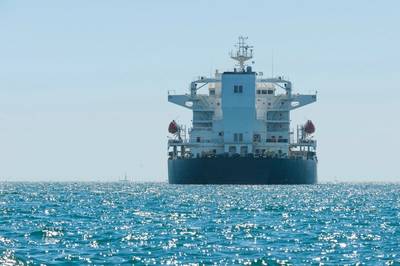Shell Outlines Plans for Decarbonized Shipping
It will take well-defined goals and a mix of new green technologies to meet the International Maritime Organization's (IMO) target to achieve net-zero shipping emissions by 2050, oil major Shell said in a newly published report.
In the report, Decarbonizing Shipping: Setting Shell’s Course, Shell highlights the role that hydrogen and fuel cells could play in achieving a decarbonized shipping sector. Calling for the IMO to adopt a clear trajectory to net-zero emissions by 2050, Shell outlines how it is contributing to accelerating the change needed in the industry to achieve this goal.
“The shipping industry needs to develop the new technologies, fuels and infrastructure required for a net-zero emissions sector at a pace never previously seen,” said Grahaeme Henderson, Global Head of Shell Shipping & Maritime. “This will require the determination of all of those at the forefront of this transition. We have listened to our customers and partners in the sector and we have set ourselves an ambitious course. I hope that by doing so, openly and transparently, others will be encouraged to join us and help create a net-zero emissions future for shipping.”
This publication builds on the optimism and momentum of the interviewees in the Decarbonizing Shipping: All Hands on Deck report published in July 2020 by Shell and Deloitte.
In its new report, Shell considers the potential role of different future fuels. Continuing to build the industry’s understanding of possible future technologies through research and development will be critical. Shell’s analysis points to hydrogen with fuel cells as the zero-emissions technology which has the greatest potential to help the shipping sector achieve net-zero emissions by 2050. Shell will seek to advance its research in this area, as hydrogen is projected to benefit from build-out across other industry and transport sectors, making it potentially more cost competitive than alternative zero-emissions fuels.
Meanwhile the shipping sector cannot simply wait for its zero-emissions fuel to emerge and must also look to bring down and peak emissions as quickly as possible, Shell said. A zero-emissions fuel is not likely to be available on a commercial scale globally until the 2030s, so the industry must employ solutions currently available, such as wind assist, air lubrication, advanced engine lubricants and digital optimization technologies, to take action to reduce emissions now.
Shell noted how liquefied natural gas (LNG) can also help lower greenhouse gas emissions today. Compared to heavy fuel oil, from extraction to combustion LNG reduces greenhouse gas emissions by up to 21% for two-stroke slow speed engines and up to 15% for four-stroke medium speed engines. It can also be used with fuel cells to aid the development of this key technology. In this way, LNG can play a critical role in helping the industry to lower its emissions today and develop technology for the zero-emissions fuels of the future, while continuing to address methane slippage.
The report sets out how Shell is accelerating progress in its own operations and across the industry. The company has set a course guided by its belief that collaboration is essential, and by the IMO principles that shipping’s emissions must be phased out as soon as possible and the sector’s emissions must peak as quickly as possible. A selection of key actions Shell will undertake are to:
- call for the IMO to adopt a clear trajectory to a net-zero emissions shipping sector by 2050;
- develop the experience and standards for use of hydrogen in a marine environment and enable commercial deployment of hydrogen across sectors;
- establish a consortium to develop and trial fuel cells on a commercial deep-sea vessel;
- develop a set of performance standards for application on future new-build vessels for all ship types with the aim to deliver up to 25% emissions savings;
- implement a program of emissions data collection across Shell’s internationally traded time and voyage charters with the intent to publish annual carbon intensity data;
- double Shell’s existing LNG bunkering infrastructure on key international trade routes by the mid-2020s;
- further build the commercial case for our unique industry offering of carbon neutral lubricants through development of our nature-based solutions portfolio; and
- collaborate deliberately and decisively with those at the leading edge of the transition in the sector in order to accelerate decarbonization. This will include, for example, working within the Getting to Zero coalition, and developing an industry-based coalition covering the entire value chain for US and Canadian cabotage shipping operations.













